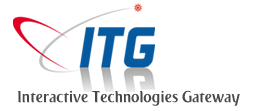
These workshops have been prepared with the following groups of Textile, Clothing and Fashion personnel in mind:
1- Current employees with merchandising, colour, fashion and design skills, requiring a technical understanding and technical communication skills to source a specific style, quality or production technique in a proposed garment range.
2- Current employees wishing to broaden their knowledge and understanding of the many facets of the total textile pipeline.
3- Professional scientists, economists, HRM personnel etc. newly appointed to the industry requiring a quick
overview in chosen industry sectors.
Yarns are the components or materials that are used in the production of fabrics. Main spinning methods, their advantages and disadvantages will be examined in this workshop. The influence of yarn structure, parameters and properties on the fabric characteristics such as weight, drape, cost and surface appearance will be given for woven and knitted fabrics. The influence of yarn twist and yarn ply on fabric properties such as pilling, handle, spiraled, stability and cost will be studied with respect to woven and knitted fabrics. Participants are invited to bring current examples where the yarn is of specific interest.
This workshop is designed to give participants a practical understanding of knitted fabrics. Participants will be introduced to knitted fabrics terminology, measurements and assessment methods. Basic knitting processes will be demonstrated. The properties and qualities of various knit structures will be explained in relation to expected wear performance, typical end use and cost. Participants are encouraged to bring current samples for comment or analysis.
This workshop commences with the fundamental principles of weaving. This workshop is also designed to give participants a practical understanding of woven fabrics. Participants will be introduced to woven fabrics terminology, measurements and assessment methods. Basic weaving processes including dobby and jacquard will be demonstrated. The properties and qualities of various weaves will be explained in relation to expected wear performance, typical end use and cost. Participants are encouraged to bring current samples for comment or analysis.
This workshop covers the following: Develop skills and knowledge to communicate effectively with suppliers across the design/technology divide; Resolve common inconsistencies and discrepancies in trade terminology to describe various garment construction processes; Clarify universal terms used in the apparel trade to identify items, processes and equipment; Understand the relationship between correct fabric selection and achieving the desired result in a finished product; Analyse and select appropriate stitch and seam types and relate these to production costs; Evaluate the criteria that determines a product’s functionality and ‘fitness for purpose’; Understand how traditional and contemporary work flow systems affect price and quality; Understand the principles of garment fit and pattern alteration; Contribute to commercial and practical inputs into the product development process; Understand how to build quality into products at the development stage; Interpret the requirements of designers and buyers; Evaluate the performance properties and suitability of components, trims and interlinings; and Develop effective problem solving skills during late stage product development.
This workshop explains the diversity of the dyeing and printing industry, relating fibre and fabric classifications to the appropriate dyeing section, and explains customer expectations in terms of cost, delivery times, and min/max production runs. Processes for textile dyeing, including heat transfer and digital printing are covered. The color fastness properties of dyed and printed textile materials will be studied with emphasis on fastness to daylight exposure, domestic laundering, perspiration and rubbing. The acceptance criteria to these test results will be discussed with respect to price and consumer satisfaction. The RMIT Textiles dye laboratory has the latest colour measurement / computerised dye formulae prediction equipment. Workshop content will also cover quality assurance and routine testing procedures. This equipment and its use in the dye house and as a tool for monitoring colour predictability will be explained. Problems associated with colour matching will also be discussed.
This workshop is designed to develop an understanding of the structure of the finishing industry and its close relationship with the dyeing industry. The many processes which are collectively referred to as FINISHING, will be grouped according to their function then discussed in a range of sequences, referred to as “finishing routines”. The machinery used, cycle times, minimum production runs and costs will be discussed together with the quality control procedures necessary to retain consistency of finish.
This workshop is designed for garment manufacturers, wholesalers, retailers and other professionals who require a thorough understanding of the Australian Standards on Labelling and their responsibilities under legislation. Participants will develop a sound understanding of the inter-relationship between product classification, expected performance and appropriate labelling. Textile care and dry-cleaning will be discussed with respect to clarification of the A, P, F and X symbols and application of the Mandatory Standard on Care Labelling.
This workshop will introduce participants to quality concepts, testing requirements and application of textile specifications. No matter what field of textiles participants are from, this workshop will help participants appreciate how specifications are applied in the textile industry.









 1
1 2
2 3
3 4
4 5
5